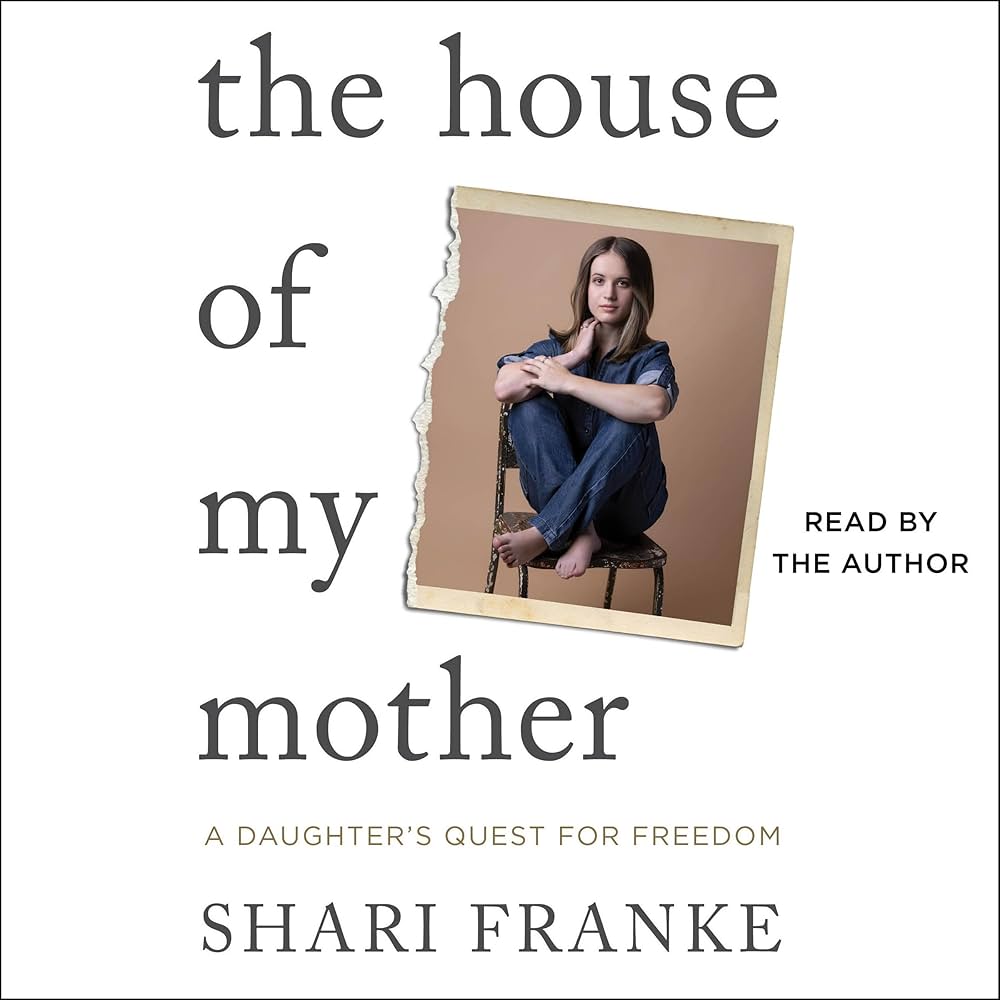Shari Franke Book: A Daughter's Journey from Abuse to Freedom

The release of Shari Franke’s memoir, The House of My Mother: A Daughter’s Quest for Freedom, has sparked widespread interest and discussion. This compelling narrative unveils the hidden struggles and abuse experienced within the seemingly idyllic family portrayed on the popular YouTube channel, 8 Passengers. Franke’s story transcends the confines of a personal memoir, offering valuable insights into the complexities of emotional abuse, the dangers of influencer culture, and the enduring impact of manipulative relationships. This in-depth analysis explores the book’s central themes, its reception, and its broader cultural impact.
The Narrative: Unmasking the Truth Behind 8 Passengers
The House of My Mother chronicles Shari Franke’s childhood within a family that cultivated a meticulously crafted public image. The 8 Passengers YouTube channel presented a picture of a loving, religiously devout family, attracting millions of subscribers. However, this façade concealed a harsh reality of emotional and psychological abuse orchestrated by Franke’s mother, Ruby Franke, and amplified by the influence of relationship coach Jodi Hildebrandt and her program, ConneXions. The book details the manipulative tactics employed, the severe disciplinary measures enforced, and the lasting emotional scars inflicted upon Shari and her siblings.

Franke meticulously recounts the escalating abuse, highlighting the gradual erosion of her sense of self-worth and the insidious nature of her mother’s control. She vividly portrays the atmosphere of fear and uncertainty that permeated her childhood home, the constant pressure to maintain the perfect family image for their online audience, and the devastating consequences of this constant surveillance and performance. The book doesn’t shy away from the painful details, portraying the manipulative strategies used to control the children’s behavior and emotions.
The arrest of Ruby and Jodi Hildebrandt in 2023 on multiple charges of aggravated child abuse marked a pivotal turning point in Shari’s life and provided the impetus for writing this memoir. The event is presented not simply as a legal conclusion but as a moment of hard-won liberation, symbolizing the breaking of a cycle of abuse. The book’s power lies in its unflinching honesty, its detailed account of the abuse, and its depiction of Shari’s resilience in the face of unimaginable adversity.

The narrative also critically examines the influence of the Church of Jesus Christ of Latter-day Saints on the family’s dynamics and the role religion played in shaping the parents’ worldview. This examination isn’t a blanket condemnation of faith but rather a nuanced exploration of how religious dogma can be manipulated to justify abusive practices.
Exploring Key Themes: Abuse, Influencer Culture, and Resilience
Several critical themes intertwine throughout The House of My Mother, creating a multi-layered and thought-provoking narrative.
The Pervasiveness of Emotional Abuse
The book serves as a stark reminder of the insidious nature of emotional abuse, often overlooked or underestimated compared to physical forms of abuse. Franke masterfully depicts how her mother’s manipulative tactics eroded her self-esteem, distorted her perception of reality, and created a pervasive sense of fear and inadequacy. The subtle yet damaging effects of emotional control are meticulously detailed, offering a crucial understanding of this often-unseen form of abuse.

The Dangers of Influencer Culture and Exploitative Content
The House of My Mother provides a cautionary tale about the potential for exploitation inherent in the influencer culture. The relentless pursuit of online popularity and the commodification of family life are presented as significant factors that contributed to the family’s dysfunction. Franke’s honest exploration of her own involvement in creating content for her social media channels, mirroring her mother’s behavior, highlights the cyclical nature of such abuse and its potential to normalize unhealthy dynamics within families.
Shari’s Strength and Resilience
Despite the trauma she endured, Franke’s memoir ultimately celebrates her strength, resilience, and capacity for healing. Her decision to share her story is an act of profound courage, transforming a painful past into a powerful message of hope and empowerment. The narrative illustrates her journey towards self-discovery, independence, and the rebuilding of a healthy relationship with herself and those around her.
Critical Reception and Public Response
The book’s release has garnered considerable attention, generating a diverse range of responses from readers and critics alike. While many have praised Franke’s courage and the book’s powerful message, others have raised questions about the book’s structure, the level of detail provided, and Franke’s continued association with the LDS Church.
Some reviews lauded the book’s impact and importance, highlighting its contribution to raising awareness of the dangers of family vlogging and its potential for normalizing unhealthy family dynamics. The book has been commended for its raw honesty, emotional depth, and its compelling storytelling. However, other critics have expressed concerns about the book’s seemingly rushed narrative and lack of deeper reflection on the role of religion and influencer culture in the family’s struggles. Some critics also felt that the book should have provided more detailed accounts of the events and involved family members, while others understood and respected the author’s decision to protect her siblings’ privacy. Nevertheless, the book’s success is undeniable, evidenced by its widespread popularity and numerous positive reviews.
The contrasting viewpoints highlight the multifaceted nature of the issues explored in the book and the complexities involved in processing and sharing such personal experiences of trauma. The varied reviews also exemplify the range of perspectives on the family, influencer culture, and the role religion plays in shaping personal experience.
Cultural Impact and Broader Implications
Beyond its personal narrative, The House of My Mother has significant cultural implications. The book has already contributed to a broader conversation about the dangers of family vlogging and the ethical considerations surrounding the exploitation of children for online content. It has also generated renewed interest in and scrutiny of online influencer culture and the potential harms associated with the construction and maintenance of idealized online personas.
The book’s impact extends to informing public discourse on child abuse and the need for stronger protections for vulnerable children within families engaged in social media content creation. It serves as a critical examination of the influence of religious extremism and the potential for such ideologies to rationalize and even encourage abusive practices.
The book’s lasting legacy will likely be its contribution to raising awareness and prompting greater critical engagement with the complexities of family dynamics, the dangers of online exploitation, and the importance of safeguarding vulnerable children from harm. The narrative encourages critical thought regarding the influence of social media on personal identity, family relationships, and the ethical responsibilities of online content creators.
In conclusion, Shari Franke’s The House of My Mother: A Daughter’s Quest for Freedom stands as a powerful and poignant memoir, offering a compelling narrative that resonates on multiple levels. Its exploration of emotional abuse, the perils of influencer culture, and the strength of the human spirit promises to have a lasting impact on the conversations surrounding these critical social issues.